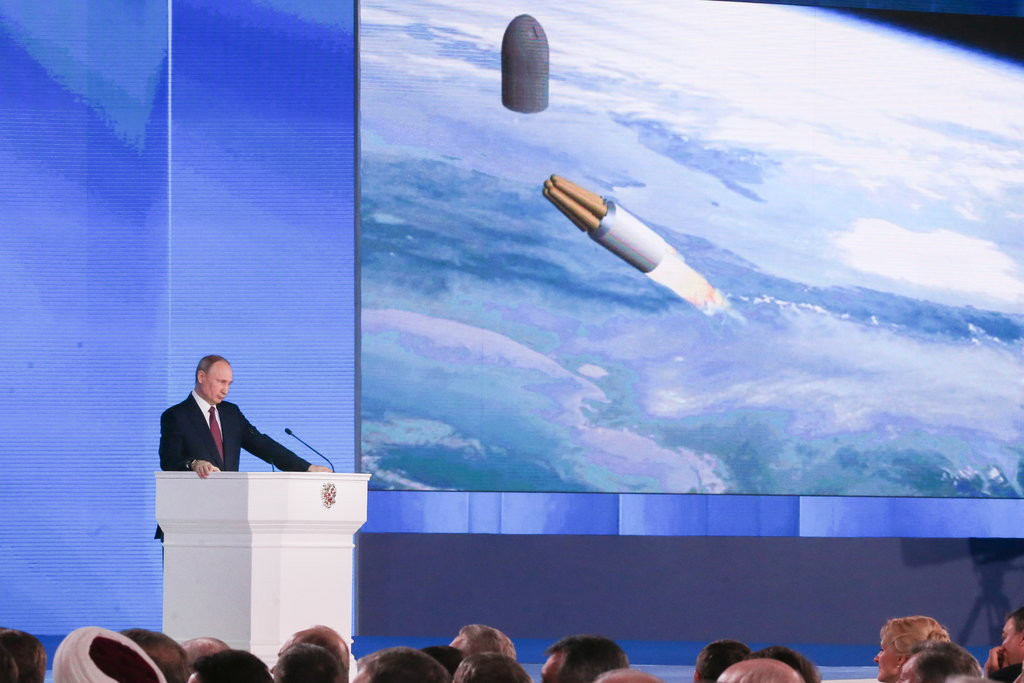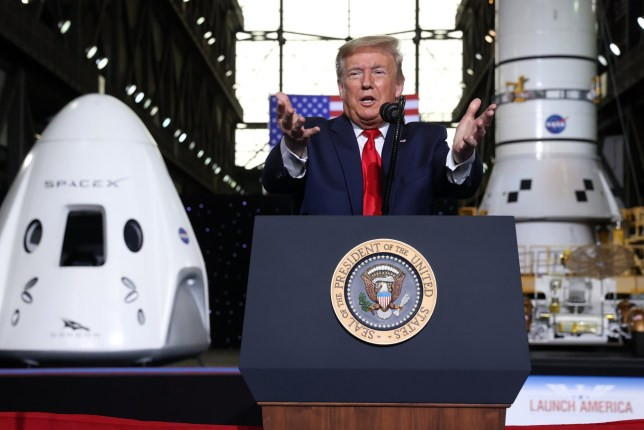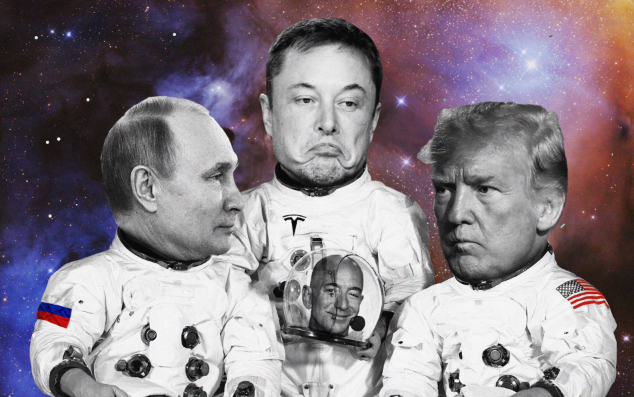Russia plans to test missiles, accelerating competition with the US
(Baonghean.vn) - Immediately after the US successfully launched a spacecraft carrying astronauts to the International Space Station (ISS) for the first time since 2011, Russia immediately had its first reactions. Not only announcing plans to test two new rockets this year, Russia also emphasized that it will continue to deploy the Moon program in 2021.
CAN'T SIT STILL!
“We will not sit still. This year, we will test two new rockets and resume the Moon chapter next year.” The latest statement by Mr. Vladimir Ustimenko - Spokesperson of the Russian Space Corporation Roscosmos probably wants to send many messages. Because clearly, the feeling of breaking Russia's monopoly as the only country with the ability and technology to send astronauts into space is not pleasant. In the past 10 years, since the US space shuttle system stopped operating in 2011, Russia's Soyuz spacecraft have been the only means of transporting astronauts to the International Space Station (ISS).
 |
| Russian President Vladimir Putin is hatching a number of space strategies to compete with the US. Photo: Getty |
Even the "big guy" NASA has had to rely on Russia for nearly a decade to carry its astronauts to the Space Station. All of NASA's manned spacecraft expeditions are carried out by Russian rockets launched from the Baikonur Cosmodrome in Kazakhstan. Not only is Russia upset about losing its monopoly, it also understands that with the success of SpaceX and NASA, Russia will lose huge revenues in the future because for each ticket on the Soyuz spacecraft, NASA has to pay about 80 million USD to Russia.
In addition, Roscosmos spokesman Vladimir Ustimenko also wrote on Twitter that he was confused by President Donald Trump's attitude, which was considered too excited about the recent successful launch of the Crew Dragon spacecraft. Previously, President Trump declared that the US had regained its leading position in the field of space and that American astronauts would soon set foot on Mars. Not only that, Mr. Trump also declared that Washington would soon possess "the most powerful, greatest weapons in human history."
Although he did not reveal anything more about this great weapon, according to experts, the weapon that President Trump mentioned is the space attack weapons program that the Pentagon is pursuing. This program has been mentioned many times by former US Secretary of Defense James Mattis with the call for the Pentagon to deploy and use space attack weapons in the near future. Not to be outdone, the Director General of Roscosmos also recently informed about the plan to test-launch the Angara heavy rocket this fall as well as promote the development of the new Sarmat intercontinental ballistic missile. Remember, Russian President Vladimir Putin also revealed that Sarmat is one of Russia's new weapons that can make NATO's defense systems obsolete.
 |
| US President Donald Trump speaks after the US successfully launched a spacecraft carrying astronauts to the International Space Station (ISS) for the first time since 2011. Photo: Reuters |
TIP OF THE ICEBERG
In recent times, Russia, the United States, and many other countries such as China and India have appeared to be racing to become the world's number one in space conquest and commercial interests. But increasingly, countries do not need to hide their deeper goals as they continuously express concerns and accuse each other of deploying weapons into the new geostrategic space, outer space.
The public must remember that at the end of last year, US President Donald Trump signed the National Defense Authorization Act 2020 (NDAA) of up to 738 billion USD, including an important item of establishing a new military branch, the US Space Force. This also means that for the first time in 70 years, the US military has a 6th regular military branch besides the Army, Navy, Air Force, Marine Corps and Coast Guard. Right from that time, President Trump affirmed that, in the context of many threats to national security, strength in the space field plays an important role for the United States. Russia's Sputnik news agency also recently said that the US Space Force is planning to buy dozens of space jamming systems in the next 7 years. These systems will allow the US to penetrate and track all Russian satellites in the event of a conflict.
 |
| SpaceX is heating up the Russia-US space race. Photo: Telegraph |
If the US strategy is to establish new forces, invest huge spending, then since 2015 Russia has also planned to manufacture a multi-target air defense missile system; unifying all forces and means of air defense, air force, and space missiles under the command of the air defense force. Or at the end of 2017, Russia also successfully tested a special device on the Kosmos-2519 satellite capable of intercepting enemy satellites at any time. According to observers, with the breakthrough of technology, Russia is now completely able to launch into orbit satellites equipped with lasers or explosive weapons to deal with enemies. Thus, the space militarization race between Russia and the US is becoming increasingly clear. Not only accelerating in space, the US, with a series of recent moves such as withdrawing from the Open Skies Treaty and the Intermediate-Range Nuclear Forces (INF) Treaty, is also dragging back global arms control efforts. Even more dangerous, the possibility that the New Strategic Arms Reduction Treaty (New Start) will not be extended is at risk of becoming a reality.
On the one hand, it is putting pressure on Russia by continuously withdrawing the US from agreements and treaties on weapons and military; on the other hand, it is strengthening the military power of the US Space Force. Observers believe that the administration of President Donald Trump is trying to use the excuse of "security threats" to draw Russia and many other countries into a new "across space" arms race. It is not yet known what the balance between Russia and the US in the space race will be like, but it is known that this race is fraught with many potential risks, as the legal corridor in the global space sector still has many loopholes!

